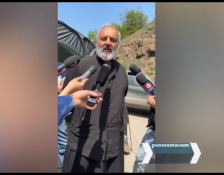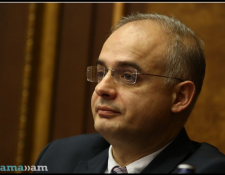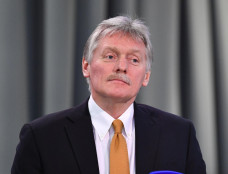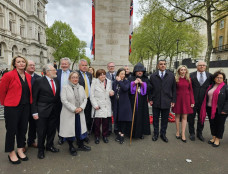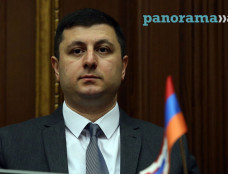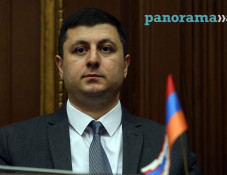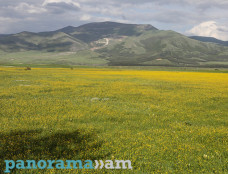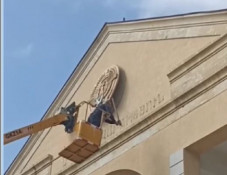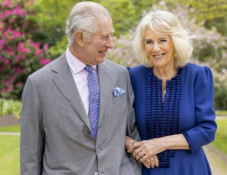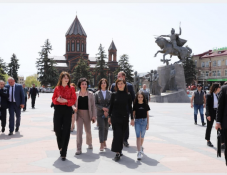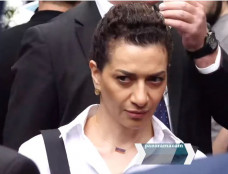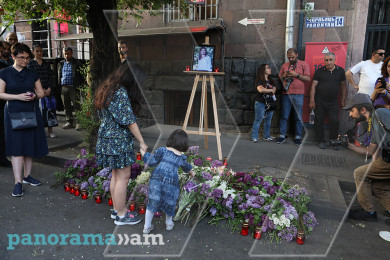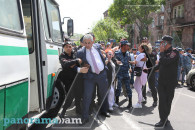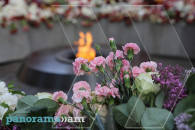
Gérard-François Dumont: Neglecting historical facts makes solution of Karabakh conflict even harder
Panorama.am presents an interview with Professor of Demography, Political Geography and Geopolitics at the University of Paris IV-Sorbonne Gérard-François Dumont.
Nvard Chalikyan: Prof. Dumont, in your recent article titled Nagorno-Karabakh: the geopolitics of a conflict without end you speak about the origins of the Nagorno-Karabakh conflict. How do you assess the fact that these historical realities are completely ignored in the current conflict resolution process?
Gérard-François Dumont: The ignorance of the historical facts which are at the heart of geopolitical conflicts is unfortunately quite common. This is clearly seen in the conflicts currently taking place in Sudan, Central Africa and even in Europe, where there is a marked tension between Hungary and the European Union. The main reason of the latter is that the treaty of Trianon, signed on 04 June 1920 in the aftermath of the World War I, was unjust. The truth is that the principle of the inviolability of frontiers currently endorsed by the international community results in complete neglect of the causes and history of the formation of these frontiers.
Comparisons are not always appropriate, however, it is interesting to compare the situations in the South Caucasus and Ukraine. The USSR, having employed the principle of «divide and rule», in 1946 attached to Ukraine Crimea, which gave Moscow access to the Black Sea and then to the Mediterranean. This complicated the current geopolitical situation of Ukraine, which is vividly seen from the fact that Crimea was the only region which voted against the independence of Ukraine in the referendum of 1991. Ceteris paribus, the USSR drew the borders of Azerbaijan according to that same principle, a fact which is now largely ignored. Similarly, the pogroms of Armenians in Baku in 1988 have also been ignored. But the neglect of historical facts always has the same result – it makes the solution of the conflict harder and fuels it even more.
NC: Considering the fact that Azerbaijan continues to pose an existential threat to Nagorno-Karabakh today (given current anti-Armenian policies, military rhetoric, etc.) do you think the proposed Madrid Principles provide tangible security guarantees to the people of the Nagorno-Karabakh against possible Azerbaijani aggression?
Gérard-François Dumont: Historically the principles are like agreements and declarations. They have exactly as much importance as the politicians give to them. Geopolitics is a game based on power balance. No principle, however desirable it might be, can ever guarantee the security of a people. Whether you are for or against the Madrid Principles, they are only principles, the interpretation of which can vary greatly depending on the protagonists, while their implementation can be very different depending on the balance of power. In other words, Nagorno-Karabakh must be ready for all the possible developments. As a matter of fact, only the peace agreement which will include security guarantees, as well as willingness to preserve those, can guarantee the security.
NC: From purely geopolitical perspective is there a scenario that can bring to a final solution of the conflict and to a long-term peace in the region?
Gérard-François Dumont: History teaches us that conflicts are resolved only when the immediate parties to the conflict really want to put an end to it. Of course, international powers can contribute to the solution of the conflict if they refrain from igniting it and if they offer guarantees. The Minsk Group plays a useful role by trying to appease the conflict and facilitate the dialogue. However, it cannot solve the conflict, as past two decades have shown. The Nagorno-Karabakh conflict can only be completely solved if Azerbaijan, Armenia and Nagorno-Karabakh find common ground and are equally eager to resolve it.
NC: And what would you say about the role of democracy in the resolution of this conflict?
Gérard-François Dumont: One of the factors that complicates the resolution of the Nagorno-Karabakh conflict is that it depends on the situation between the parties to the conflict. It is a lot easier to find a solution to those conflicts where the parties are democratic, as peoples do not like being imprisoned within closed borders and they eventually vote for those leaders who want the borders to be used as a means of exchange and trade. Thus we can only wish democratic progress to these countries.
NC: From the geopolitical perspective how do you assess the decision of the Republic of Armenia to become a member of the Customs Union? Could Armenia have possibly taken another rout being faced with the choice between Russia and Europe?
Gérard-François Dumont: Armenia, which has limited resources and is largely isolated because of the closed borders with Turkey and Azerbaijan, has to rely on those partners which have the capability and the wish to effectively contribute to Armenia’s security. The current situation in the international relations is such that the United States gives preference to Turkey at least merely due to what I call “the rule of numbers” - Turkey has a population of 76 million, while Armenia, together with Nagorno-Karabakh, has a population of three million.
The European Union, being an ally of the US, in 2005 started negotiations with Turkey for Turkey’s membership in the EU, or to be more precise, for granting Turkey a status of a candidate country, with all the financial privileges pertaining to it. But this situation is ridiculous: Turkey does not recognize the sovereignty of one of the EU members; neither does it guarantee the protection of the rights of its minorities, which is a fundamental European value.
Thus, being unable to rely either on the US or on the EU, Armenia had no other choice but to join the Russia-led Customs Union. Besides, Moscow has paid for it by offering to provide gas to Armenia with “friendly prices”. At the same time however the Customs Union cannot work miracles, for two reasons. First, the CU opens for Armenia a smaller market compared to that of the EU with the population of 500 million; second, the economy of the CU member states is based more on the exploitation of natural resources than on innovations. Having said this, it must also be acknowledged that Russia, the country that has founded the Customs Union, does after all provide a necessary security umbrella for Armenia.
NC: Professor Dumont, thank you very much for the interesting interview.
The interview was conducted by Nvard Chalikyan
Newsfeed
Videos





